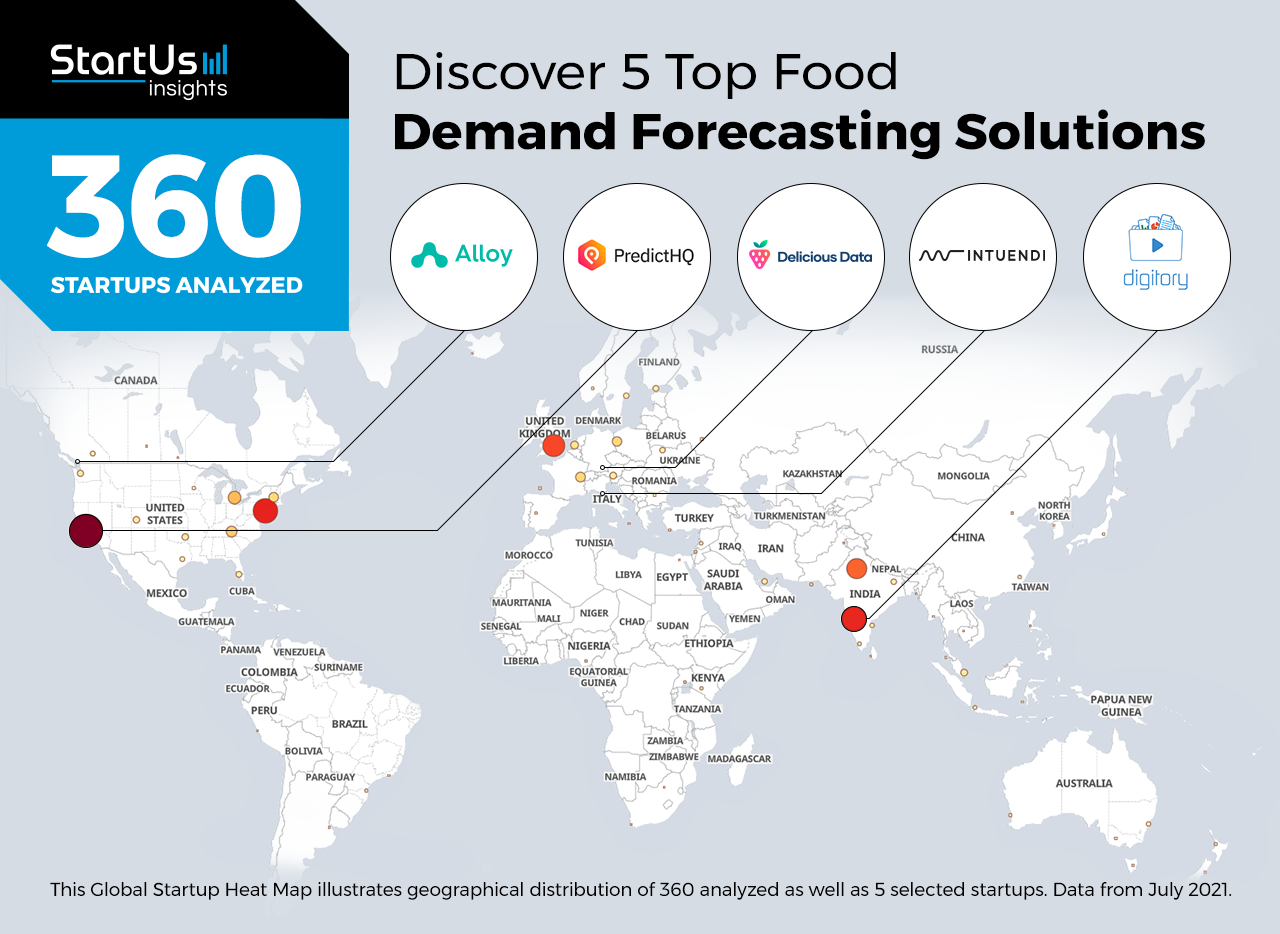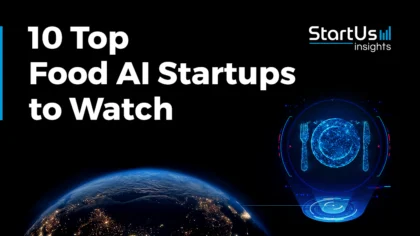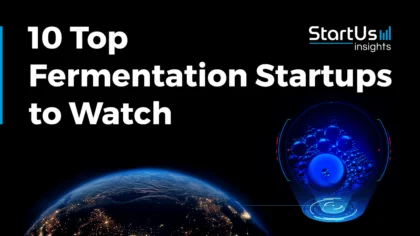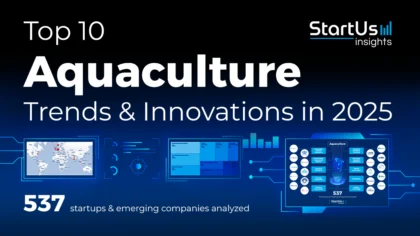Accelerate Productivity in 2025
Reignite Growth Despite the Global Slowdown
Staying ahead of the technology curve means strengthening your competitive advantage. That is why we give you data-driven innovation insights into the food industry. This time, you get to discover 5 hand-picked demand forecasting solutions.
Global Startup Heat Map highlights 5 Top Food Demand Forecasting Solutions out of 360
The insights of this data-driven analysis are derived from the Big Data & Artificial Intelligence-powered StartUs Insights Discovery Platform, covering 2.093.000+ startups & scaleups globally. The platform gives you an exhaustive overview of emerging technologies & relevant startups within a specific field in just a few clicks.
The Global Startup Heat Map below reveals the distribution of the 360 exemplary startups & scaleups we analyzed for this research. Further, it highlights 5 startups offering demand forecasting solutions that we hand-picked based on criteria such as founding year, location, funding raised, and more. You get to explore the solutions of these 5 startups & scaleups in this report. For insights on the other 355 demand forecasting solutions, get in touch.
Alloy offers a Demand Planning Solution
In the food industry, planning and execution of supply chains are essential to meet demand. However, in most cases, due to the lack of accurate demand forecasting, food inventories are overstocked and lead to food wastage. To avoid this, startups are creating solutions that use point of sale (PoS) data to build models that accurately predict the level of demand.
Canadian startup Alloy develops planning and execution software to forecast customer demand. Their PoS-driven solution selects forecast models and integrates them with sell-through data for different stock-keeping units (SKUs) or categories. The model then identifies deviations between the forecast and consumer demand in real-time. This data is later analyzed to create responses through supply chains. The solution helps the food industry achieve high levels of supply chain efficiency while minimizing food waste.
Digitory provides Demand Forecasting Platforms
Companies and businesses in the food industry allocate a higher amount of their budget towards maintaining an excess of food inventory. This is done to ensure that there is always sufficient inventory to meet demand at any given time. Currently, managers estimate demand largely through experience and intuition, which results in inaccurate spending on inventory. For this reason, startups are providing forecasting models to optimize cash flows in inventory management.
Indian startup Digitory specializes in artificial intelligence (AI) and machine learning (ML) platforms to manage costs and profitability for the food industry. Their sales forecasting solution uses advanced computational techniques to identify sales patterns and create accurate models for prediction. Their solution increases the profits of restaurants through the optimization of production and inventory planning.
PredictHQ builds Event-Driven Demand Forecasting Software
Grocery stores and supermarkets maintain a large range of products in high volumes to cater to diverse consumer demands. However, the demand for all products is not the same and some are subject to seasonality and fluctuations in demand. Apart from these, unscheduled events and other external factors negatively impact stock levels. Additionally, these problems also affect small-scale food companies, such as restaurants. This is why, to solve these challenges, startups are creating demand forecasting solutions that assist all levels of the food industry.
US-based startup PredictHQ develops demand forecasting solutions that use internal and external data to learn and adapt its models. Their demand intelligence tool provides grocery stores, supermarkets, and restaurants with analysis on events that impact inventory levels, assortment planning, and worker schedules. PredictHQ’s application programming interface (API) also uses external intelligence such as sports games viewership, nearby expos or community events, weather, and more to anticipate event-driven demand volatility for quick-service restaurants.
Delicious Data enables AI-based Demand Forecasting
In bakeries, products need to be consumed quickly. Hence, it is essential to optimize production with demand to avoid wastage and losses. Bakeries that have multiple stores often have different levels of demand at each store, therefore the use of average demand across all stores for estimation creates inaccurate forecasts. For this reason, startups are developing forecasting solutions for individual stores that optimize production down to the hour while optimizing workflows.
German startup Delicious Data develops forecasting solutions using machine learning for procurement and production. Their solution helps bakeries forecast sales to enable demand-oriented action and optimize product display placement to attract customers. The software forecasts sales at a minute level which allows employees to optimize the production of products with high accuracy. Thereby, reducing overproduction and wastage of food which, in turn, increases profits.
Intuendi creates a Cloud-based Demand Forecasting Platform
Most demand forecasting solutions focus on small to medium-sized applications that offer low scalability. However, modern food industry businesses are highly diversified in the products that they provide through large chains of network stores. This scale of business presents a significant challenge for traditional demand forecasting software, which is why startups are providing cloud-based solutions geared towards large-scale operations.
Italian startup Intuendi specializes in providing a cloud-based demand forecasting platform that applies AI to optimize inventory planning. Their solution automates the data collection and forecasting process from multiple sources to provide insights from underlying sales data. Additionally, the software accounts for factors such as promotions, stock shortages, stockouts, calendar events, seasonality, and more. The startup helps the food companies optimize daily purchase orders, perishable items management, cost of dead inventory, and more.
Discover more Food Tech Startups
Food startups such as the examples highlighted in this report focus on improving demand management for food businesses using AI, cloud technologies, as well as planning and event-driven solutions. While all of these technologies play a major role in advancing the food industry, they only represent the tip of the iceberg. To explore more food technologies, simply get in touch to let us look into your areas of interest. For a more general overview, you can download our free FoodTech Innovation Report to save your time and improve strategic decision-making.








